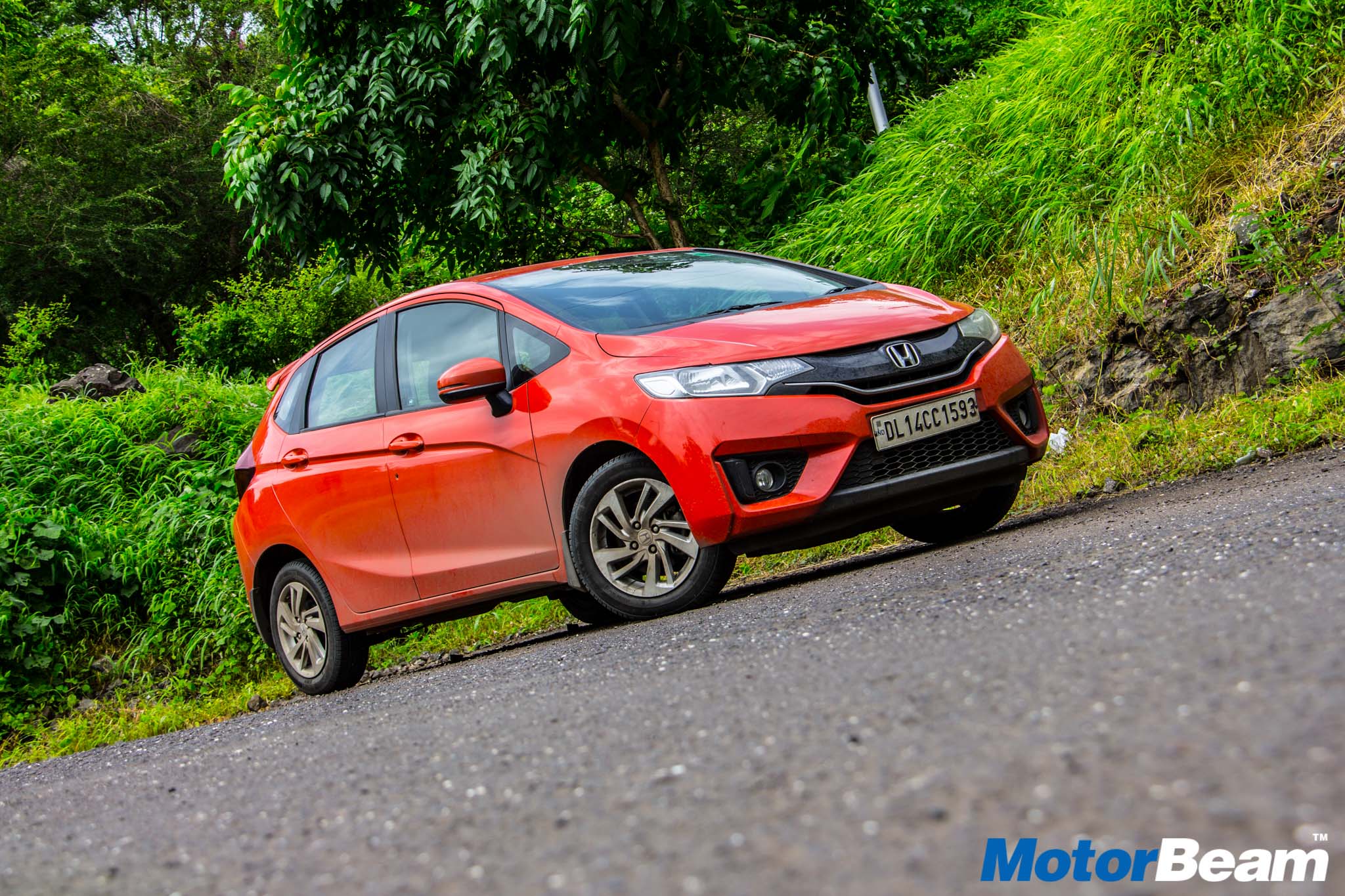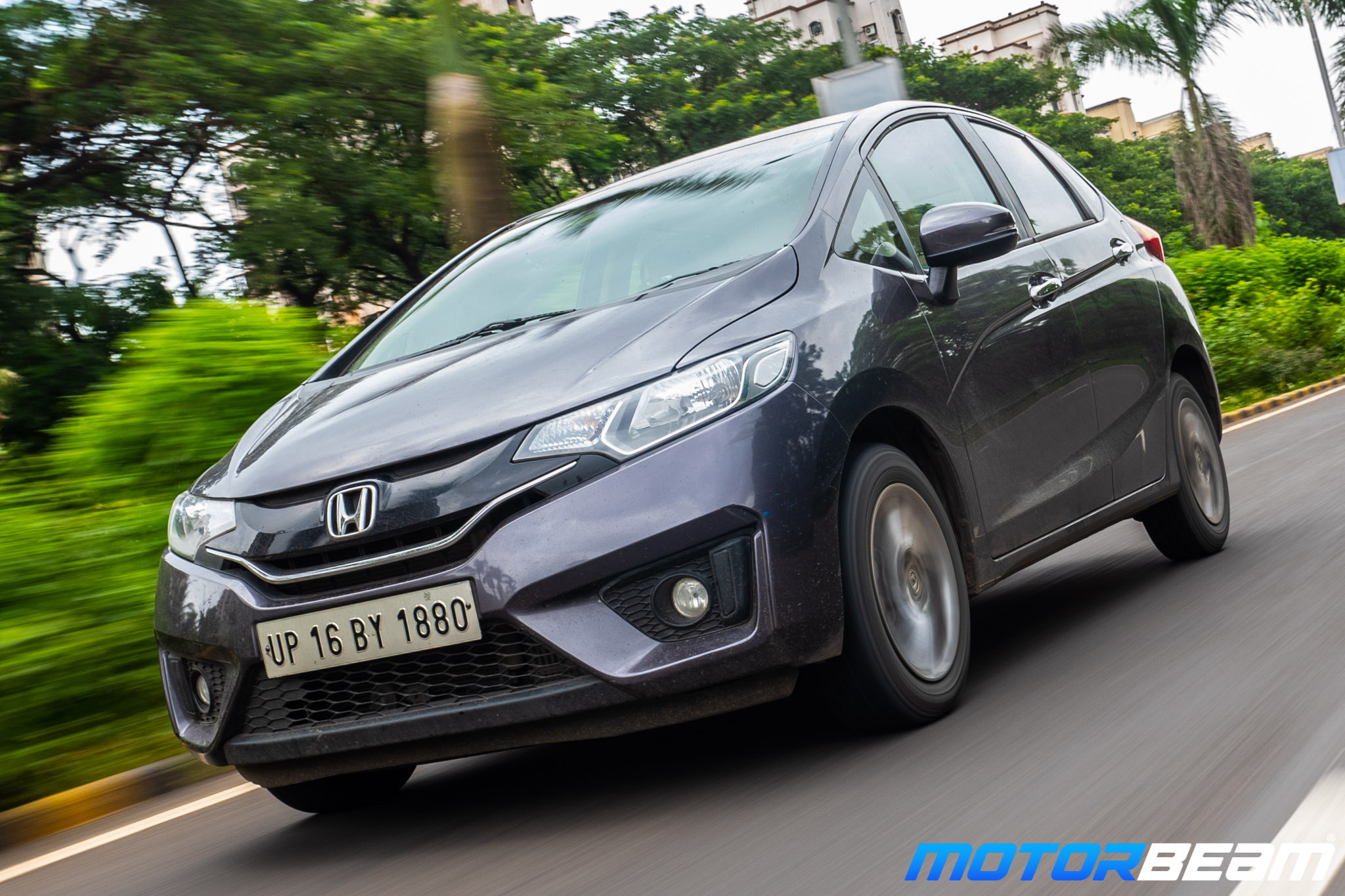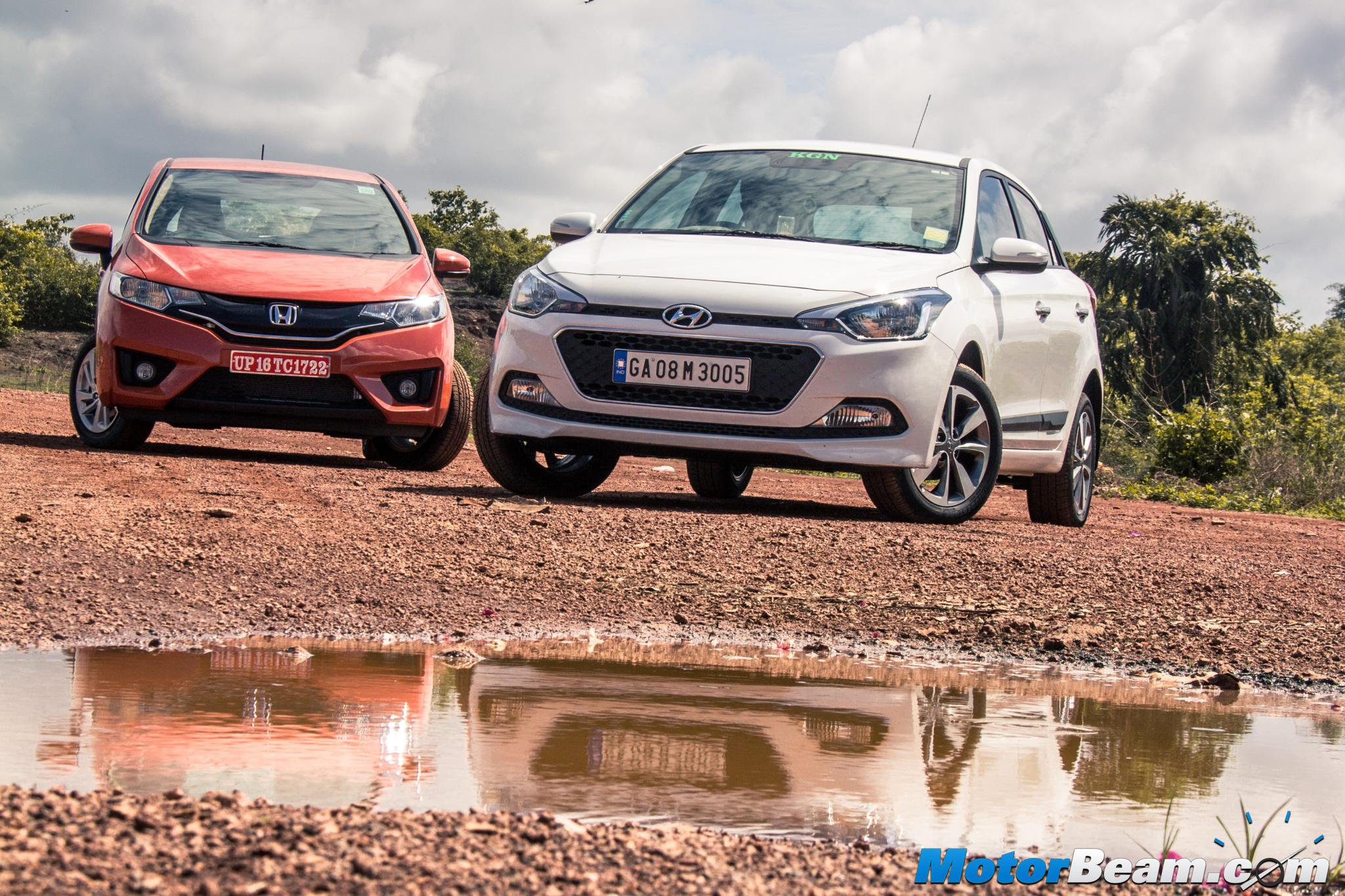
Shootout: 2015 Honda Jazz vs Hyundai Elite i20
Price OTR Mumbai: Rs. 6.31 – 10.37 lakhs (Honda Jazz), Rs. 6.29 – 9.44 lakhs (Hyundai Elite i20)
These premium hatchbacks have a lot to offer and are great alternatives to sedans
The premium hatchback space has caught up big time in India in the past few years. Expensive hatchbacks is no longer an alien concept in India and the Hyundai i20 can be credited for nurturing such culture. But when Hyundai launched the first generation i20 in India, it wasn’t alone in that space as Honda too launched the Jazz around the same time. Now in 2015, both these cars are closely battling with each other for the premium hatch crown. The Hyundai Elite i20 has a huge fan following in India and is an established product while the Honda Jazz isn’t as strong on the popularity front but can the Japanese vehicle really beat the Korean machine?
Motor Quest: Hyundai launched the i20 in India in 2008 which was also the year when the car made its global debut, replacing the Getz. Honda brought the Jazz to India in 2009 and due to low local content, it was priced high and didn’t sell well. The first generation Jazz dates back to 2001 and the vehicle is in its third generation while the i20 is currently in its second generation.
Almost similar in length, both cars have a very different design language
Styling – Both these cars carry a similar length although the Hyundai i20 is longer and wider while the Honda Jazz is taller. When the Elite i20 made its debut last year, not everyone liked its design instantly but with time, the Korean hatchback has grown on us. The i20’s styling has little in common with its predecessor while the same can’t be said about the Jazz whose overall profile does remind you of the old model. The Jazz looks like a shrunk down MPV while the i20 has a bold stance, it also comes with bigger 16-inch wheels and blackened out C-pillar for that floating roof appearance.
The i20 has a more striking rear-end while the Jazz is also quite appealing
The Honda Jazz is a car whose styling is neutral and won’t offend anyone but neither will it make you go wow while the Hyundai does come across as eye-catchy thanks to its unconventional styling. The Jazz comes with a smaller sloping bonnet while the i20 features a longer hood. The Honda also gets LED tail lights but the rear of the i20 is so well designed that its tail lights remind people of bigger and more popular cars. During our test of these cars, almost everyone we asked to choose a car for the design, chose the Elite i20. There is no denying, the Korean car is the better looker here.
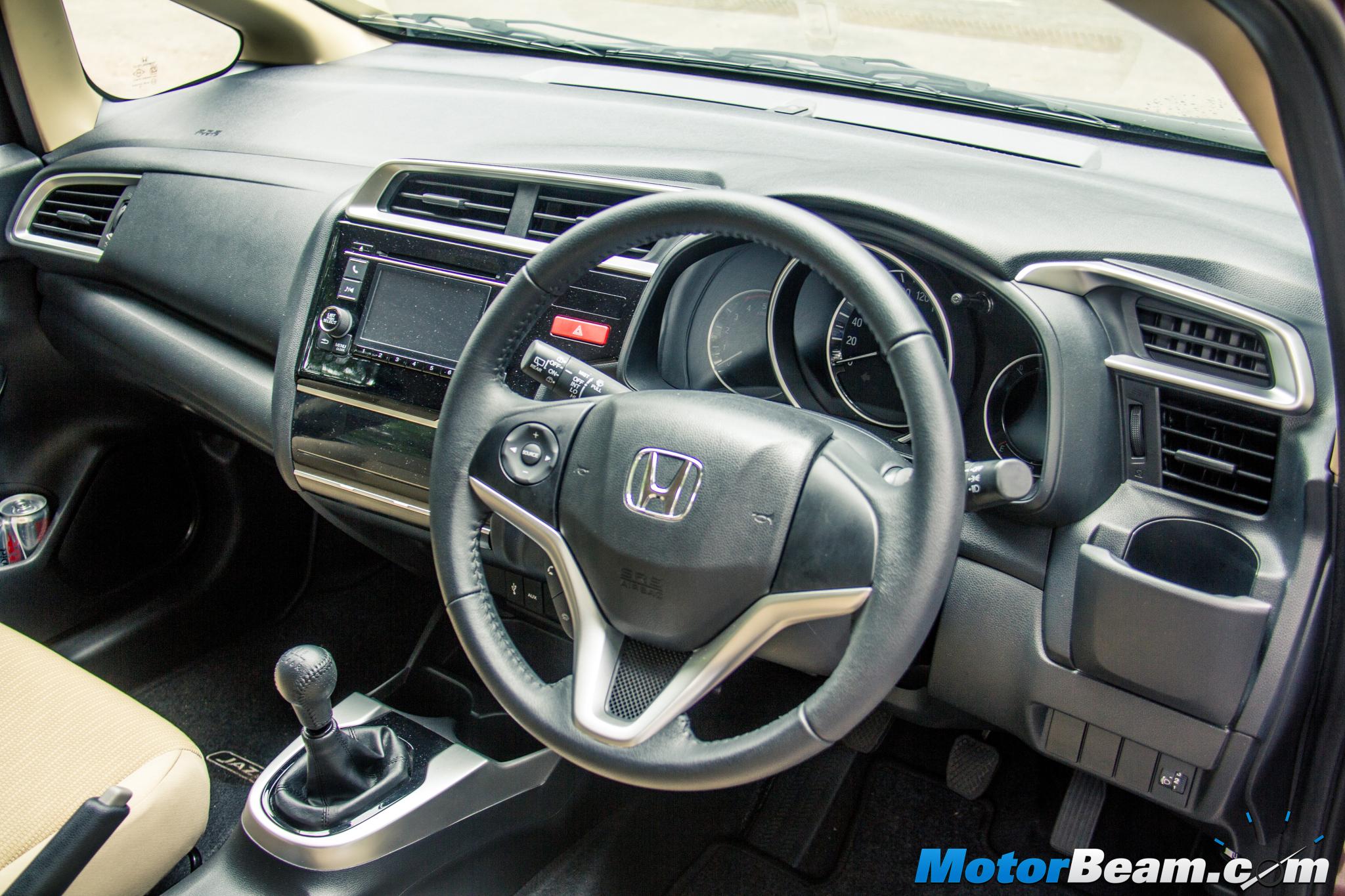
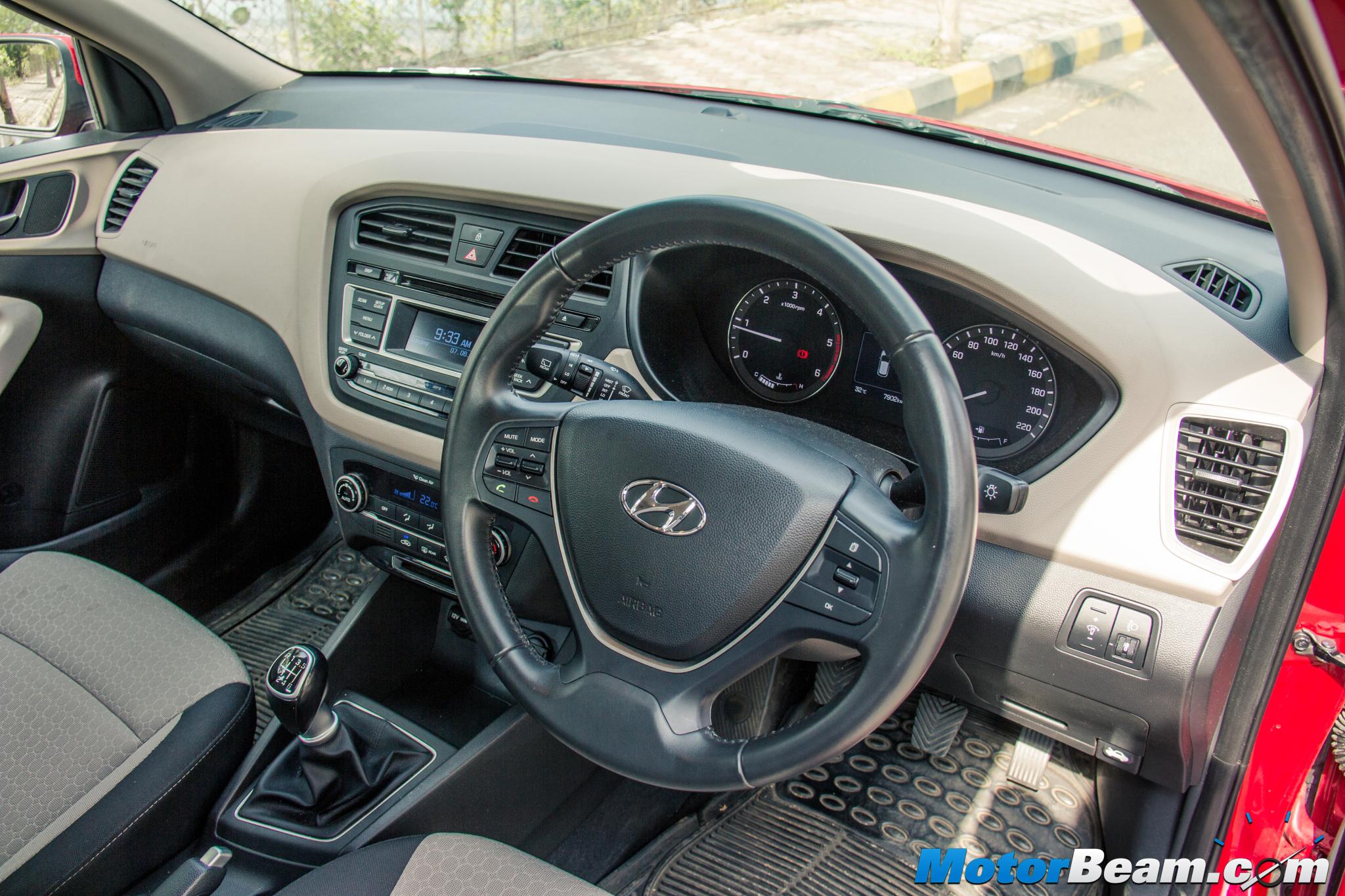
The cabin on both cars is well put together but the i20 feels superior in quality and also has more equipment
Interiors – The dashboard of both cars look appealing but we like the one on the Hyundai more as it looks richer. The Elite i20 gets a dual tone dashboard while the Jazz has an all black unit. The interiors are dual tone on both cars but the top-end Jazz gets all black interiors for a sporty feel. Quality inside the cabin of the i20 is superior than the Jazz but not by a big margin but where the Hyundai puts the Honda to shame is in terms of equipment, the former also displaying the position of the steering wheel on the console. The Elite i20 gets keyless go (approach the car and the mirrors retract automatically), push button start, dedicated lock/unlock button, automatic headlights, 1 GB storage for the audio system, an extra power socket, reach adjustment for the steering, rear AC vents, cooled glovebox, electro-chromatic rearview mirror, follow-me-home headlamps and reverse parking sensors which are omitted by Honda. The Jazz does come with three views for the reverse camera, distance to empty, touch-screen for the climate control system and a touch-screen AVN, Hyundai will soon be adding the latter most to the i20.
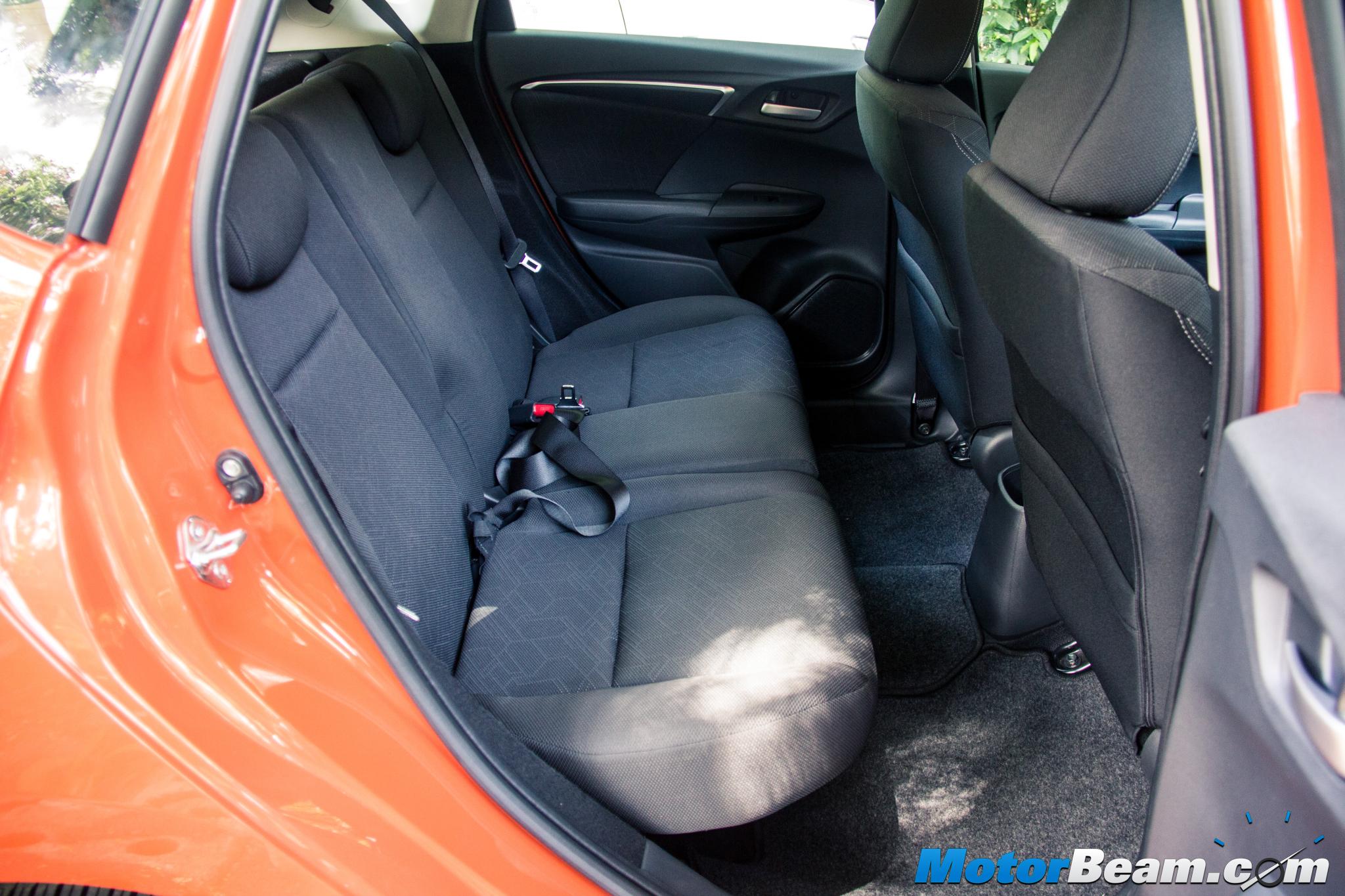
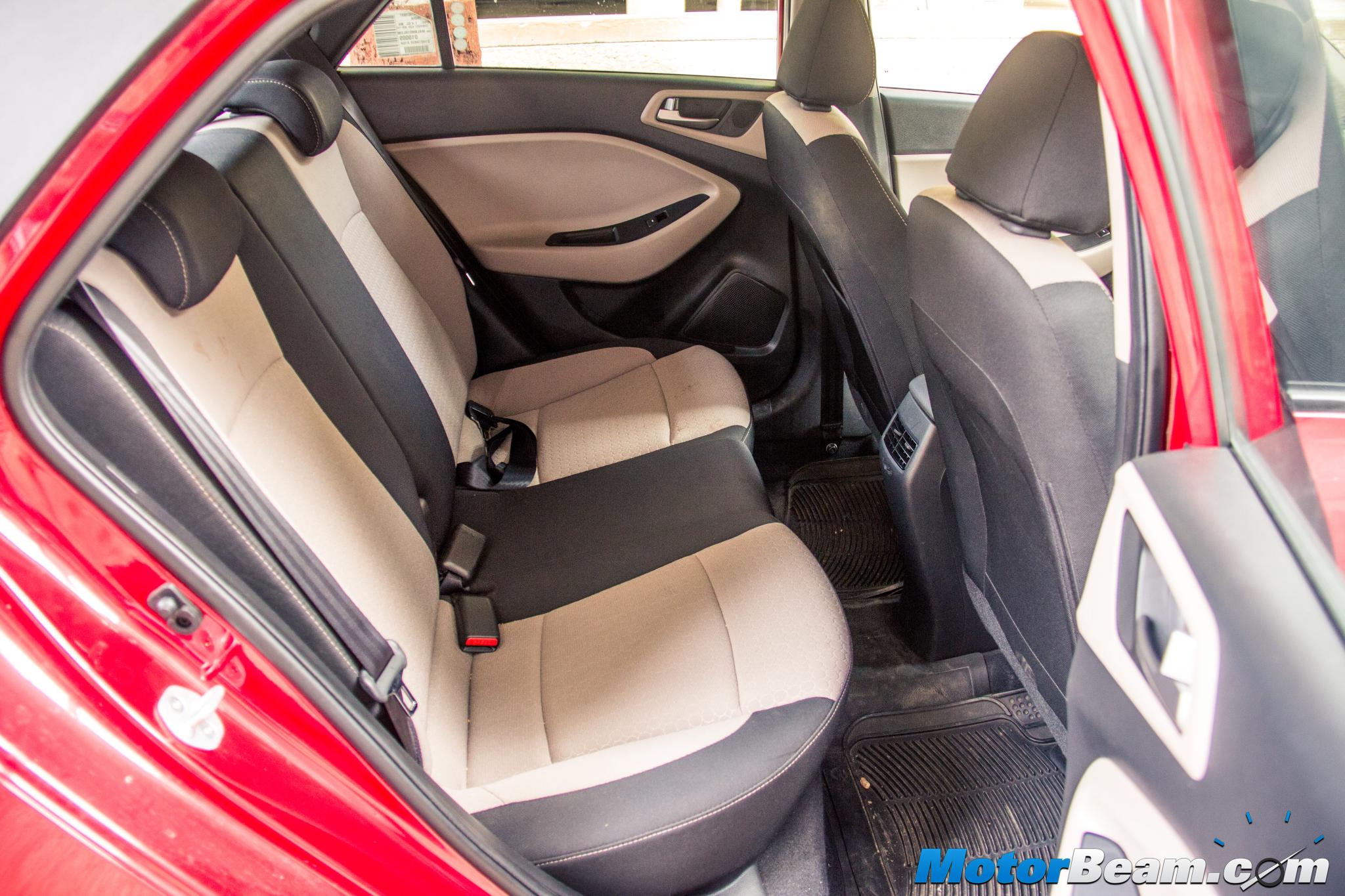
Honda has the upper hand when it comes to space and storage options, the Magic Seats are simply awesome
The Elite i20 has much more features and better quality than the Jazz
The Hyundai Elite i20 comes with a longer wheelbase but Honda’s ‘Man Maximum, Machine Minimum’ philosophy has resulted in the Jazz easily beating the Korean hatch when it comes to interior space, having 240-litres more passenger volume. The Jazz not only has much more rear seat legroom (160 mm more than the i20) and knee room (115 mm more than the i20) but it also comes with much better flexibility thanks to Magic Seats that are offered on the top-end VX trim. That’s not all, the Japanese hatchback also beats the Elite in terms of storage spaces with the Honda having more cubby holes, making it the most spacious and practical car in the segment. The Jazz also comes with a massive 354-litres boot and the i20 pales in comparison with its 285-litres trunk. Honda has chosen fixed rear headrests for the Jazz while the i20 gets adjustable ones, making it more comfortable for tall passengers.
Honda’s i-VTEC engine offers more fun while the petrol i20 has better low-end response
Performance – Being premium hatchbacks ducking under the 4-metre length, both cars are powered by 1.2-litre petrol engines. There isn’t much to differentiate between them in terms of output numbers either because the i-VTEC mill on the Jazz produces 90 PS at 6000 RPM and 110 Nm at 4800 RPM while the Elite i20’s VTVT Kappa motor generates 83 PS at 6000 RPM and 115 Nm at 4000 RPM. The Hyundai powerplant might be down on power but has higher torque which peaks in earlier than the Jazz, giving it very good city performance which the Honda lacks. The petrol Jazz has good mid-range performance but really excels in the top-end, redlining close to 7000 RPM, while the Korean powertrain isn’t as rev happy. The Honda is quicker to the ton and both cars get loud post 4000 RPM. These cars offer adequate performance but won’t make you scream in joy like a Volkswagen Polo 1.2 TSI will.
The Jazz also comes with a CVT automatic gearbox, the party piece is the paddle shifters
The petrol Jazz does feel better to drive than the petrol i20 but the diesel Hyundai beats the Honda
These premium hatchbacks are matched to a 5-speed manual gearbox and the one on the Hyundai offers smoother shifts while the Honda is also offered with a 7-step CVT automatic gearbox. The petrol AT Jazz is quite fun to drive thanks to the presence of paddle shifters on the steering, being the most affordable car to come with such a feature. Honda beats Hyundai hands down in mileage, be it petrol or diesel engine as the Jazz petrol is rated at 18.7 km/l for the manual, 19 km/l for the CVT and an astonishing 27.3 km/l for the diesel. In comparison, the Elite i20 manages 18.6 km/l (lower trims) and 18.24 km/l (top trims) for the petrol while the diesel returns 21.76 km/l (lower trims) and 22.54 km/l (top trims). All these figures are ARAI certified while in the real world, both the Jazz and i20 will return 12 km/l for the petrol while the diesel Honda will manage 18 km/l in front of the i20’s 16 km/l. The Jazz comes with an Eco mode indicator while the Elite i20 gets a gear position indicator with up and downshift recommendations. The i20 does come with a 5-litre bigger fuel tank.
The diesel i20 is not only faster than the diesel Jazz but also much better in NVH
For the first time in the world, the Honda Jazz gets a diesel engine and the same is limited to the Indian market. The 1.5-litre i-DTEC mill comes from the City, belts out 100 PS at 3600 RPM and 200 Nm at 1750 RPM. The Hyundai i20 Elite draws diesel power from a 1.4-litre U2 mill which belts out 90 PS at 4000 RPM and 220 Nm of torque between 1750 to 2750 RPM. The Honda offers lag free performance while the i20 is strongest in the mid-range, boasting of a much better top-end than the Jazz. The Hyundai oil burner redlines at just under 4800 RPM while the Honda unit has its rev limiter kick in at just 4100 RPM, the Korean car also having a free revving motor. Both cars come with a 6-speed manual gearbox and the i20 offers better shifts, that and the higher revving diesel mill makes it more fun to drive than the Jazz but the Honda is faster in the 0-100 km/hr sprint. What further impresses about the Korean powertrain is the NVH, it is tons better than the noisy Earth Dreams engine. There is no question about it, Hyundai does have the better diesel here.
The Jazz handles much better than the i20, its steering has much more feel too
Driving Dynamics – Honda cars are known to be good handlers, while the same can’t be said about Hyundai vehicles. The Jazz comes across as the better handler here and that too by a comfortable margin, offering more confidence to push hard. The i20 has neutral handling, it’s not engaging but it is no more hairy like its predecessor. The Jazz is a bit stiffly sprung while the i20 has a softer set-up in comparison, resulting in the Korean hatch having a better ride quality (more so on lower trims with 14-inch higher profile tyres). However, there is some bounciness on the Hyundai while the Honda remains more stable at speed.
The i20 has a good ride quality but can get bouncy while the Jazz is stiffer
With its wider tyres, the Hyundai Elite i20 does manage to give more grip through corners and the same advantage plays when braking hard as the puny rubber on the Honda Jazz doesn’t have the contact patch for drama free emergency stops. With its lighter steering and smaller turning radius, the i20 is the easier car to manoeuvre through congested traffic while the Jazz with its massive glass area gives better visibility once you get used to the big A-pillar. The steering wheel on the Jazz has more feel and feedback than the rather lifeless unit on the Elite i20.
Both these cars are equally matched in terms of safety and service
Safety and After Sales Service – The Honda Jazz has been given 5-stars by Euro NCAP while the second generation Hyundai i20 scored 4 stars. Based on the crash test results, the Jazz does have better structural rigidity than the i20 but the same can’t be equated to the Indian market as the cars sold here don’t get the same safety kit (no side airbags) and the sheet metal quality could also differ. Both cars come with front airbags, ABS and EBD which is offered from the mid to top trims. These cars also get other safety features like reverse parking camera, immobiliser and front/rear foglamps to name a few. Hyundai has a much bigger service network than Honda in India but both manufacturers are known to offer good service to its customers.
The Hyundai i20 makes for a better package in the premium hatchback space
Verdict – The petrol Jazz is no doubt a better performer than the petrol i20 while in diesel, the tables turn. Crucially though, the Hyundai manages to go one up over the Honda when it comes to exterior styling, interior design, equipment and quality. The i20 brand also has a strong foothold in the Indian market while the poor sales performance of the old Jazz puts it at a disadvantage against its Korean rival. With Honda having gone for the premium pricing route yet again, this Hyundai’s reign at the top is impossible to beat. The i20 is the clear winner of our shootout and trumps the Jazz on all the crucial counts.
The Hyundai Elite i20 feels like a better package than the Honda Jazz as the Korean car is a better all-rounder. While the Jazz is the more driver centric car here, for most buyers, the styling and higher features on the Elite i20 are enough to seal the deal.
The i20’s styling draws a lot of attention on the road, not the same case with the Jazz
Testers’ Note:
For those looking for space, the Honda Jazz is easily the best hatchback
Further Reading –
2015 Honda Jazz Review
Hyundai Elite i20 Review
Hyundai Elite i20 Long Term Review
Hyundai i20 Active vs Hyundai Elite i20
Hyundai Elite i20 vs Maruti Swift vs Volkswagen Polo vs Fiat Punto Evo
Honda Jazz vs Maruti Baleno vs Hyundai Elite i20
Picture Editing – Sri Manikanta Achanta


